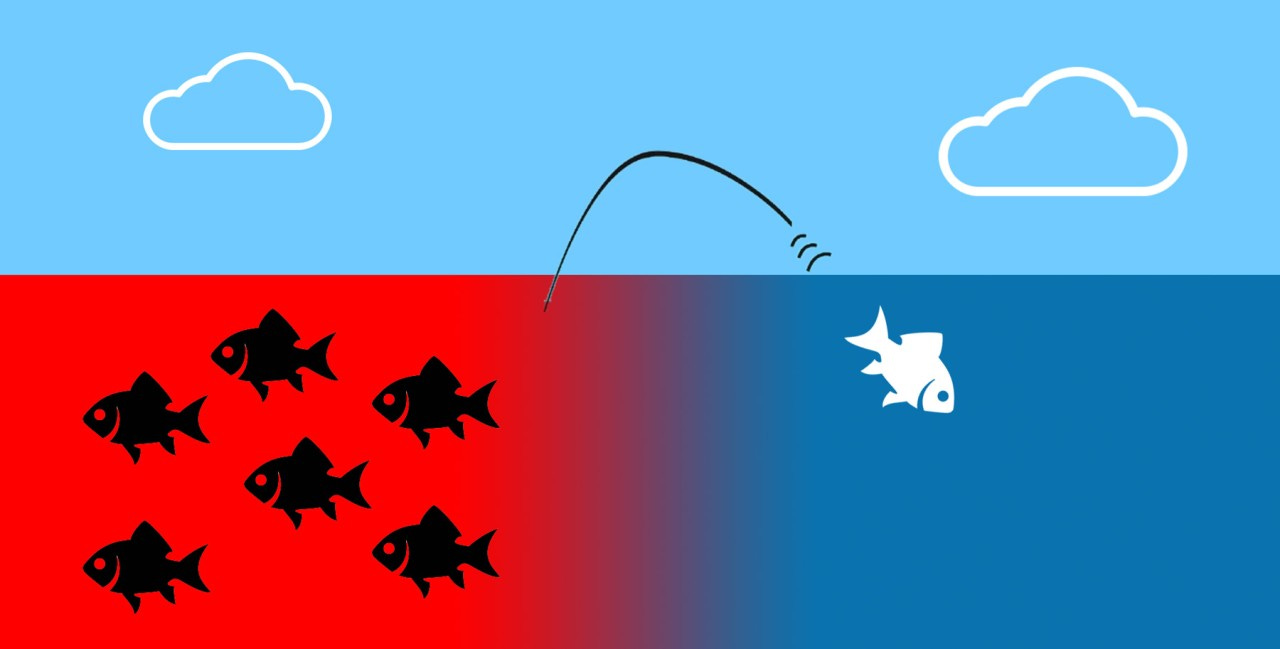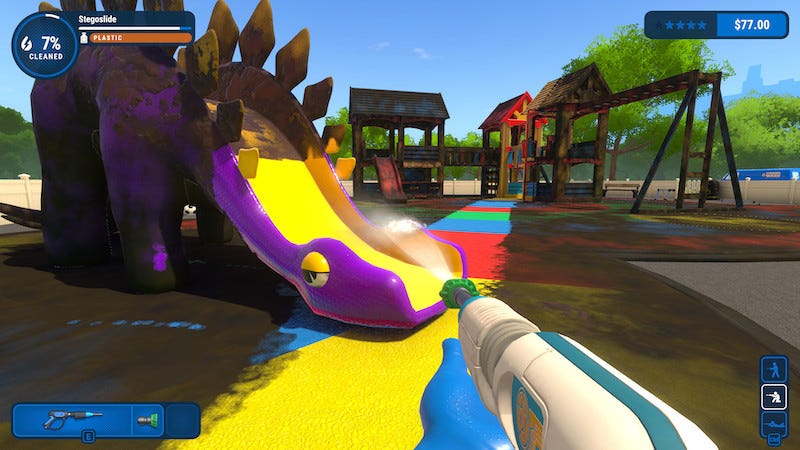Finding the 'blue ocean' in 2025's game market...
Publikováno: 14.2.2025
An expansion on Tuesday's breakout theme. Also: lots of news & Steam releases for the week.
[The GameDiscoverCo game discovery newsletter is written by ‘how people find your game’ expert & company founder Simon Carless, and is a regular look at how people discover and buy video games in the 2020s.]
As we round off the week - and thanks to everyone we ran into at DICE in Las Vegas - we’re revisiting a pretty busy news slate, while at the same time expanding on big picture lessons from Tuesday’s data-packed GDCo newsletter. (It’s all go.)
Before we start, an important update for Souls-like and Hidetaka Miyazaki fans - Elden Ring Nightreign doesn’t have a ‘poison swamp’ level, mainly because the spinoff is led by Miyazaki protege Junya Ishizaki. (Poisonous swamp fans, just ask someone to sit next to you while you play, repeatedly poking you with their finger?)
Game discovery news: Deliverance 2 re-delivers..
The latter half of this week has brought a cornucopia of discovery and platform news, which we’ll deliver to you while spinning several plates on individual sticks:
The latest Footprints.gg ‘trad media’ coverage round-up shows the surging Kingdom Come: Deliverance 2 (already approaching 2 million sales!) atop the chart, with Switch 2 chatter, Monster Hunter Wilds, and Civilization VII next up.
PlayStation’s holiday 2024 results were a bit of a (good!) surprise: “PlayStation 5 lifetime shipments [at] 75M, after moving 9.5M in its best holiday quarter yet… Over 40% of PS5 sales in Q3 were new users. Closed the lifetime gap with PS4, which was 76.7M at the same point.” (Some benefit from Xbox fading and Switch at end of lifecycle? And GTA 6 is going to be a big PS hardware-seller in - allegedly - late 2025.)
Also notable from Sony’s full results: “The number of [PlayStation Network] monthly active users grew to 129 million – up from 123 million compared to December 2023 – marking the highest number of MAUs in PS history.” Great - and as Helldivers 2 hit 12 million sold (across PC/PS), we’re wondering how many of these are PC-only…
Steam has added detail on its official themed & quarterly sales for the second half of 2025, and there’s one major change: “2025 Steam Autumn Sale: September 29 – October 6. (Please note this is a different time frame compared to previous Autumn Sales).” For reference, 2024’s was November 27th to December 4th.
Kickstarter recently revealed its 2024 board game and video game performance, and: “$26m [was] pledged to successful video game campaigns - a 28% increase from 2023… 441 successful video game campaigns - a 9% increase from 2023.” That’s an average of $60,000, but we bet the median is more like $10-$20k.
Last night’s DICE Awards winners were headed by Astro Bot (five awards, including Game Of The Year), followed by Helldivers 2 (four wins), and then Balatro and Indiana Jones and the Great Circle (three wins apiece.) Oh, and Batman: Arkham Shadow won VR/AR Game Of The Year.
PlayStation’s latest State Of Play third-party game showcase hit this week, and here’s all the announcements, Borderlands 4 being confirmed for a Sept. 22nd release one of the most consequential, alongside new Digimon & Five Nights At Freddy’s games, and Returnal dev Housemarque’s single-player Saros reveal.
Here’s a ‘snapshot of DICE vibes’ from David Kaye: “The mood is dark: if last year's motto was ‘Survive till '25’, this year's was ‘on the precipice’. Of what, is the question.” And there’s China pullback: “One MAJOR [strategic investor] who has made dozens of investments… is reportedly… divesting ALL investments outside of China.”
Supercell’s megaboss Ilkka Paananen did another of his fascinating yearly round-ups, with revenue of ‘just’ $3 billion (and EBIDTA of $947m) for the Brawl Star & Clash Of Clans devs. But it’s his philosophies that intrigue - it’s clear Paananen is committed to making new games, and doesn’t love the ‘M&A only’ approach.
Combining public PlayStation hardware sales data with a new ‘94 million total consoles’ stat in Take Two’s results, Paul Thurrott concludes: “Microsoft has sold… about 29 million Xbox Series X|S consoles” as of Nov, versus 65+ million PlayStations. And John Welfare & Derek Strickland have a separate estimate of 35.9 million Xboxen until more recently. (But you get the idea, ratio-wise.)
ICYMI: detail on EA’s underperformance with soccer game EA FC 25: “While early acquisitions started out strong, post-launch acquisition cohorts waited longer in the cycle to apply the new title, as many stayed in prior iterations.” When players get yearly franchises at 80% off or in Game Pass/PS+, moving them on is tricky?
Finally, we always knew those Epic Games Store advances for PC exclusivity were good. But when you’re a cost-conscious dev like Saber, they looked amazing, per a GameFile interview ($) with CEO Matt Karch re: World War Z: “[The advance] paid for our [dev] budget three times over.” (The game did sell 250k in its first week on EGS, though, so was probably one of the store’s better bets.)
Finding the ‘blue ocean’ in 2025’s game market…

Following Tuesday’s newsletter on mini-strategy game publisher Rogue Duck, some folks cornered me in the GameDiscoverCo Plus Discord, and asked - sure, these folks could be ‘the future’, but what precisely were you saying about trends?
And agreed, you could take a number of diverse strategies away from their approach! But for us, we have a few specific market-driven theories for developing and publishing better-selling games - at least for small and medium devs not making AAA-ish titles - in this super, super-crowded PC and console game market:
Keep an eye on trends and try to find under-developed genres vs. 'just put out high quality games'.
'Finding under-developed subgenres/types of games'is fairly different to trend chasing - it's more of a 'blue ocean' tactic.
Or more specifically: 'Look at a type of game where people have played a successful one, and don't have any more to play.'
There’s probably one phrase in there you might be a little unfamiliar with, and it’s ‘blue ocean’. If you’ve been around a while in the game industry, you may link it to Nintendo comments made around the launch of the Wii.
According to Nintendo’s Perrin Kaplan, quoted back in 2006: “Inside Nintendo, we call our [Nintendo DS & Wii] strategy “Blue Ocean.” This is in contrast to a “Red Ocean.” Seeing a Blue Ocean is the notion of creating a market where there initially was none - going out where nobody has yet gone.”
Some of the original ‘blue ocean’ theory came from a Harvard Business Review piece from W. Chan Kim and Renée Mauborgne in 2004: “Blue oceans denote all the industries not in existence today - the unknown market space… in blue oceans, demand is created rather than fought over.” They cite Cirque du Soleil as a perfect example of demand creation.
In fact, on PC/console, ‘blue ocean’ originators are relatively rare, and tend to be titles that scratch more casual itches, based on human nature. Examples we can think of:
PowerWash Simulator - I’m not sure anybody expected the simple art of cleaning in-game objects to be so relaxing. (It’s so ambiently pleasant that some players use it as a second-screen game while watching TV!)
Human Fall Flat - This one’s a little more debatable, but ‘goofing around with physics with your buddies while doing light puzzles and falling off things a lot’ is not a traditional video game genre!
Unpacking - again, not really a genre or type of game that you would presume would be a massive hit. But it has a lot of appeal to players who love order (or disorder!) See also: A Little To The Left.
We’re aware that there are some antecedents for each of these titles. But these are the ones that have broken through. And we’re not suggesting that most people can create these ‘blue ocean’-type ‘market maker’ titles from scratch. (In fact, all of these titles were surprise hits, with ‘surprise’ being the key word!)
But what you can do is look at the market these games have created, and think about how big that market is, and if players would like to see twists and evolutions on that title. Over time, trailblazing titles may end up creating genres around themselves. (Ahem, Souls-likes!)
But this is where the ‘blue ocean vs. red ocean’ metaphor gets tricky. You can argue that a ‘blue ocean’ originator is Vampire Survivors, the surprise hit that elegantly simplified the ARPG genre for PC and console players. But GDCo’s recent survey noted that ~600 Survivors-likes launched on Steam in the 3 years after the OG title hit.
So are Survivors-likes a red ocean or a blue ocean, at this point? Is making one now degenerating into red ocean trend chasing? And when did it shift? Answering this comes down to:
how big is the market for the initial game?
how likely are players to try new games in a similar style?
are there 6, 60, or 600 truly competitive games in the same general space?
We think there’s room on the top-end of the Vampire Survivors-like genre, if you make games with the ‘no-shoot x random/cool powerups’ mechanic and interesting twists, maybe improved graphical fidelity. But you could also say: 600 competitors is red ocean territory, man!
To end: we actually have a great example of a ‘blue ocean’ follow-up game in next Tuesday’s newsletter. When I heard it was doing well, it made me go ‘oh, that’s such a good idea, but I never thought of the OG game as a ‘blue ocean’ originator’. So yep, truly perceiving games that deserve this approach is very, very ‘not easy’. Fun times, huh?
Steam debuts: Civilization VII keeps on truckin’
As always, we have a detailed breakdown of the top Steam debuts for the week - with data on CCU highs and conversions - for our Plus/Pro subscribers. And this week, it’s the ‘official’ release of Civilization VII which is dominating matters.

